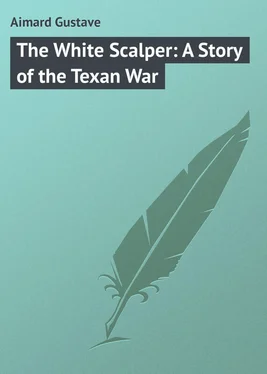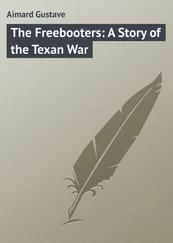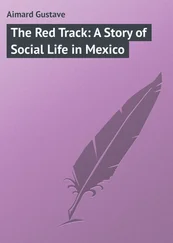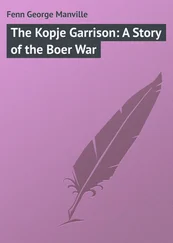Gustave Aimard - The White Scalper - A Story of the Texan War
Здесь есть возможность читать онлайн «Gustave Aimard - The White Scalper - A Story of the Texan War» — ознакомительный отрывок электронной книги совершенно бесплатно, а после прочтения отрывка купить полную версию. В некоторых случаях можно слушать аудио, скачать через торрент в формате fb2 и присутствует краткое содержание. Жанр: foreign_language, foreign_prose, на английском языке. Описание произведения, (предисловие) а так же отзывы посетителей доступны на портале библиотеки ЛибКат.
- Название:The White Scalper: A Story of the Texan War
- Автор:
- Жанр:
- Год:неизвестен
- ISBN:нет данных
- Рейтинг книги:4 / 5. Голосов: 1
-
Избранное:Добавить в избранное
- Отзывы:
-
Ваша оценка:
- 80
- 1
- 2
- 3
- 4
- 5
The White Scalper: A Story of the Texan War: краткое содержание, описание и аннотация
Предлагаем к чтению аннотацию, описание, краткое содержание или предисловие (зависит от того, что написал сам автор книги «The White Scalper: A Story of the Texan War»). Если вы не нашли необходимую информацию о книге — напишите в комментариях, мы постараемся отыскать её.
The White Scalper: A Story of the Texan War — читать онлайн ознакомительный отрывок
Ниже представлен текст книги, разбитый по страницам. Система сохранения места последней прочитанной страницы, позволяет с удобством читать онлайн бесплатно книгу «The White Scalper: A Story of the Texan War», без необходимости каждый раз заново искать на чём Вы остановились. Поставьте закладку, и сможете в любой момент перейти на страницу, на которой закончили чтение.
Интервал:
Закладка:
The four mountain howitzers crowned a small hill which, through its position, completely commanded the road, while the cavalry was massed in the rear of the infantry. The silence momentarily disturbed was re-established, and the desert resumed its calm and solitary aspect. General Rubio had taken his measures so well that his army had suddenly become invisible.
When it was resolved in the council of the Texan Chiefs that the Insurrectionary army should proceed to Galveston, a rather sharp discussion took place as to the means to be adopted in reaching it. The Jaguar proposed to embark the troops aboard the corvette, the brig, and a few smaller vessels collected for the purpose. Unfortunately this advice, excellent though it was, could not be followed, owing to General Rubio's precaution of carrying off all the boats; collecting others would have occasioned an extreme loss of time; but as the boats the Mexicans had employed were now lying high and dry on the beach, and the guard at first put over them withdrawn a few hours later, the Texans thought it far more simple to set them afloat, and use them in their turn to effect the passage.
By a species of fatality the council would not put faith in the assertions of John Davis, who in vain assured them that General Rubio, entrenched in a strong position, would not allow this movement to be carried out without an attempt to prevent it; so that the abandonment of the boats by the Mexicans was only fictitious, and a trap adroitly laid to draw the Revolutionists to a spot where it would be easy to conquer them.
Unfortunately, the mysterious man to whom we have alluded had alone the right to give orders, and the reasons urged by Davis could not convince him. Deceived by his spies, he persuaded himself that General Rubio, far from having any intention of recapturing Galveston, wished to effect his junction with Santa Anna before attempting any fresh offensive movement, and that the halt at the rancho had been merely a feint to embarrass the rebels.
This incomprehensible error was the cause of incalculable disasters. The chiefs received orders to march forward, and were constrained to carry them out. Still, when this erroneous resolution had been once formed, the means of execution were selected with extreme prudence. The corvette and brig were ordered to get as near land as they could, in order to protect, by their cross fire, the embarkation of the troops, and sweep the Mexicans, if they offered any opposition. Flying columns were sent off in advance and on the flanks of the army, to clear the way, by making prisoners of any small outposts the enemy might have established.
Four principal chiefs commanded strong detachments of mounted freebooters. The four were the Jaguar, Fray Antonio, El Alferez, and Don Felix Paz, whom the reader assuredly did not expect to find under the flag of the rebels, and whom he saw only a few hours back enter the Mexican camp, and hold a secret conference with General Rubio and Colonel Melendez. These four chiefs were ordered by the Commander-in-Chief to prevent any surprise, by searching the forests and examining the tall grass. El Alferez was on the right of the army, Fray Antonio on the left, the Jaguar had the rear guard, while Don Felix, with six hundred sabres, formed the van. One word as to the guerillas of the ex-Mayor-domo of the Larch-tree hacienda. The men who composed his band, raised on lands dependent on the hacienda, had been enlisted by Don Felix. They were Indios mansos , vaqueros, and peons, mostly half savages, and rogues to a certain extent, who fought like lions at the order of their leader, to whom they were thoroughly devoted, but only recognising and obeying him, while caring nothing for the other leaders of the army. Don Felix Paz had joined the insurgents about two months previously, and rendered them eminent service with his guerillas. Hence, he had in a short time gained general confidence. We shall soon see whether he was worthy of it.
By a singular coincidence, the two armies left their camp at the same time, and marched one against the other, little suspecting that two hours later they would be face to face.
CHAPTER VI
THE BATTLE OF CERRO PARDO
The battle of Cerro Pardo was one of those sanguinary days, whose memory a nation retains for ages as an ill-omened date. In order to explain to the reader thoroughly how the events happened which we are about to narrate, we must give a detailed account of the ground on which they took place.
The spot selected by the Mexicans to effect their landing after leaving Galveston, had been very cleverly chosen by General Rubio. The stream, which, for some distance, is enclosed by high banks, runs at that spot through an extensive plain, covered with tall grass and clumps of trees, the last relics of a virgin forest, which the claims of trade have almost destroyed. This plain is closed by a species of cañón , or very narrow gorge, enclosed between two lofty Mils, whose scarped flanks are carpeted at all seasons with plants and flowers. These two hills are the Cerro Pardo and the Cerro Prieto, – that is to say, the Red Mountain and the Black Mountain.
At the canyon begins a road, or, to speak more correctly, a rather wide track, bordered by bogs and morasses, and running to the cross we have before visited. This road is the only one that can be followed in going from the interior to the seashore. A little in advance of the two hills, whose summit is covered with dense wood and scrub, extend marshes, which are the more dangerous, because their surface is perfidiously covered with close green grass, which completely conceals from the traveller the terrible danger to which he is exposed if he venture on to this moving abyss. The Cerro Pardo, which is much higher than the other hill, not only commands the latter, but also the surrounding country, as well as the sea.
After what we have said, the reader will easily perceive that the enterprise attempted by the Texans was only possible in the event of the coast being entirely undefended; but under the present circumstances, the inconceivable obstinacy of the Commander-in-Chief was the more incomprehensible, because he was not only thoroughly acquainted with the country, but at the moment when the army was about to begin its forward movements, several spies came in in succession, bringing news which entirely coincided with the positive reports already made by John Davis.
Whom the gods wish to destroy, they first blind. This wise and thoughtful man, who had ever acted with extreme prudence, and whose conceptions up to this day had been remarkable for their lucidity, was deaf to all remonstrances, and the order was given to march. The army at once set out; Don Felix Paz went on ahead with his guerillas, while the Jaguar's cuadrilla, on the contrary, remained in the rear. Tranquil, in spite of the wounds he had received, would not remain in the fort; he came along lying in a cart, having at his side Carmela and Quoniam, who paid him the utmost attention; while Lanzi, at the head of a dozen picked Freebooters given him by the Jaguar, escorted the cart, in the event of the army being disturbed during the march.
The Jaguar was sorrowful, a gloomy presentiment seemed to warn him of a misfortune. This daring man, who carried out as if in sport the maddest and most venturesome deeds, now advanced reluctantly, hesitating and constantly looking about him suspiciously, and almost timidly. Assuredly, he feared no personal danger; what did he care for an attack? What alarm did he feel about dying? Peril was his element; the heated atmosphere of battle, the odour of powder intoxicated him, and made him feel strange delight; but at this moment Carmela was near him; Carmela, whom he had so miraculously found again, and whom he feared to lose again. This strong man felt his heart soften at the thought, hence he insisted on taking the rear guard, in order to watch more closely over the maiden, and be in a position to help her if necessary.
Читать дальшеИнтервал:
Закладка:
Похожие книги на «The White Scalper: A Story of the Texan War»
Представляем Вашему вниманию похожие книги на «The White Scalper: A Story of the Texan War» списком для выбора. Мы отобрали схожую по названию и смыслу литературу в надежде предоставить читателям больше вариантов отыскать новые, интересные, ещё непрочитанные произведения.
Обсуждение, отзывы о книге «The White Scalper: A Story of the Texan War» и просто собственные мнения читателей. Оставьте ваши комментарии, напишите, что Вы думаете о произведении, его смысле или главных героях. Укажите что конкретно понравилось, а что нет, и почему Вы так считаете.












